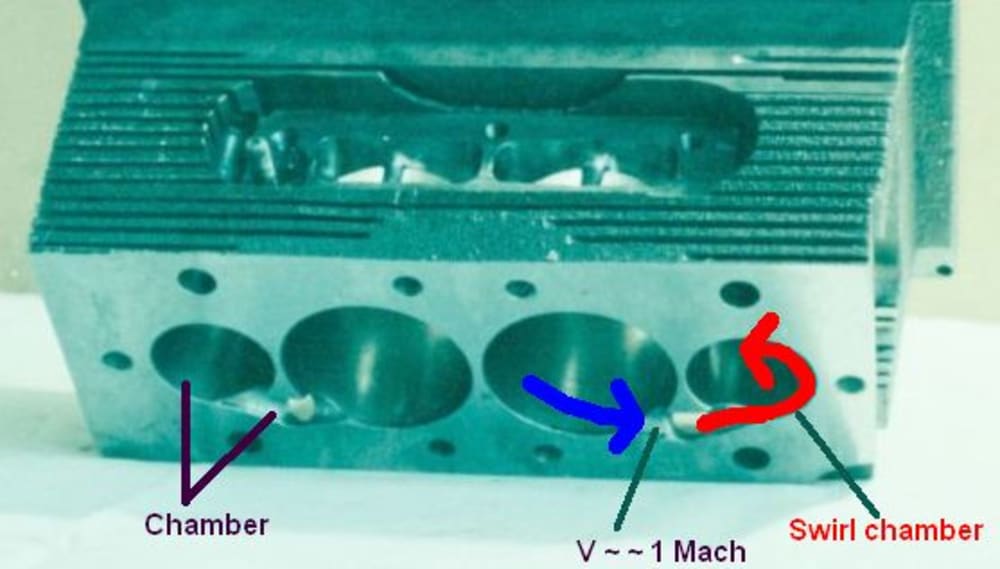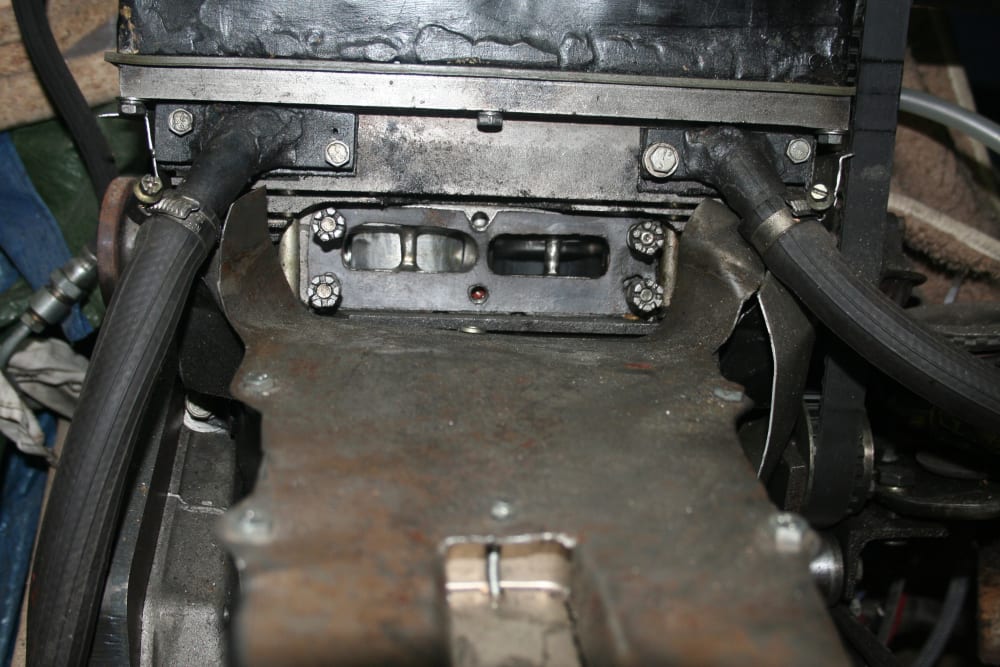In 1978, I invented a new method of timing such four-stroke engines, and as a student graduating from the department of combustion engines at the University of Techology Krakow, inspired, I was given the opportunity to do my diploma thesis at the university, but with my own money for a prototype of such an engine with my timing, which were driven by the crankshaft, but with two times lower speed, similar to the camshafts...how the engine works and if there are no vibrations what could be seen in the chains. But everything was going very well, and the only thing I noticed after tension of the working chains, it turned out that the power was not given to the timing system, and the timing system adds power to the lower crankshaft .. when the engine is running. Then I understood that I was not dealing only with the new engine timing system, and a completely new type of four-stroke... 3-piston engine system... in 1979 I finished the work.
But in 1981, when thinking about the design, I finally managed to go beyond the "magic cylinder outline" of classic valve solutions, and it turned out that the pistons can be much larger, and in addition the suction piston can be larger than the exhaust piston... Very significantly it increased the great advantage of the engine, with an increase in the displacement due to the suction piston, even by more than 50% of the main piston capacity, but with a piston that works twice slower than the main piston, so the inertia forces are 4 times smaller to achieve this additional displacement. And here we can see that the efficiency of such an engine, due to this additional displacement, will be PHYSICALLY more efficient than a conventional engine with a similar base capacity. In this way, only wanting to increase the possibilities of the timing gear itself, it was possible to obtain better efficiency of the entire engine due to this more than 50% increased displacement. The second prototype is for the Fiat 126 600 ccm engine for my private money. https://www.new4stroke.com/
In the combustion chamber, there are enormous speeds, forced mechanically, and this can cause about 10 times faster combustion in a laminar manner, which also increases the thermal efficiency ... Well, for example, with this ignition, what will it be in a compression ignition or diesel engine? Maybe a high-speed diesel? I only measured the torque at 3500 rpm, which was almost 10 KGm. Thanks to this, the engine is not damaged and ready to demonstrate its work, which this demonstration to engineers can tell a lot.
https://www.ukintpress-conferences.com/uploads/SPEXNA14/Day1_10_Andrzej_Feliks.pdf
Video
Like this entry?
-
About the Entrant
- Name:Andrzej Feliks
- Type of entry:individual
- Software used for this entry:Fortran
- Patent status:none








